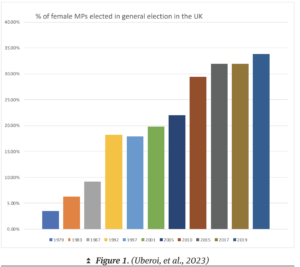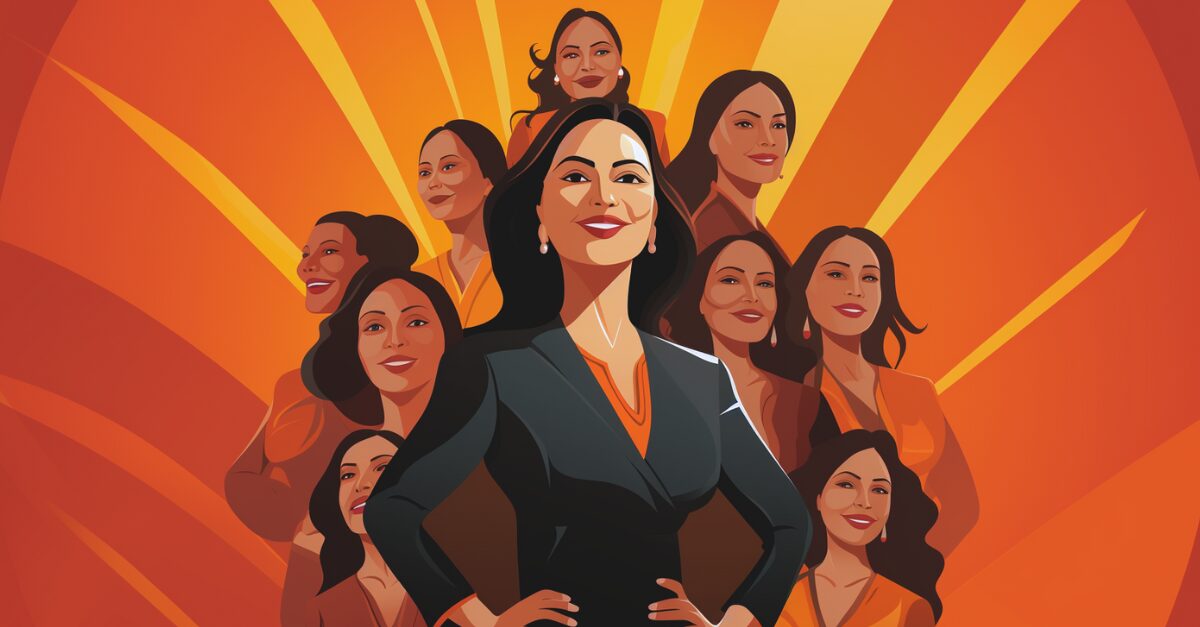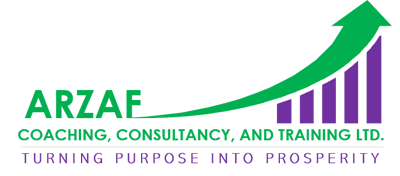Research Objectives:
In this research paper there has been an aim to focus on the current issues women are facing, including: barriers for women to obtain leadership positions, and the consequences of unfair treatment.
Keywords:
Women, Leadership, Gender Parity, Workplace
Bio
Dr. Parul Begum is an international keynote speaker, award-winning life and leadership coach, and best-selling author. Dr Parul Begum has delivered thought-provoking keynotes to some of the industry’s most prominent corporations and organizations, including Global Women Club London, Global Woman Club Accra, and Relationship Communication Group based in the United States,/. Dr. Parul champions the success of women and young girls who desire to build a sustainable life after harassment or abuse. As a Specialist Safeguarding Trainer. Dr. Parul serves as CEO and Founder of Arzaf Coaching Consultancy & Training Ltd, a global company that helps women who have experienced adversity in life, such as domestic violence, sexual abuse, or childhood trauma. Dr. Parul hosts a wildly popular podcast broadcast live on YouTube, Parul is the contributing author of the Amazon #1 best-selling book, Strong and Free Vol2. She has authored two eBooks: Boost Your Confidence in 7 Days and 7 Secrets to Unshakeable Confidence.
Abstract
Gender equality is vital in contemporary life, essentially for economic prosperity and for a safer and healthier society. Legislations have been implemented within countries globally to ensure gender equality, because it is a basic human right. Despite efforts that have been made to ensure gender equality, women are still marginalised within societies. In addition, gender parity remains to be the biggest obstacle for women to secure leadership positions in the corporate world. Men are still often viewed as more competent and capable of leadership roles in comparison to women, even when they hold identical qualifications. Hence, it is becoming increasingly challenging for women to keep their political career alive. In this research paper there has been an aim to focus on the current issues women are facing, including: barriers for women to obtain leadership positions, and the consequences of unfair treatment. This study has been conducted through research using published literature and personal experiences of the author, in addition to one-to-one sessions and online group sessions consisting of over 100 women from across the UK, and worldwide. Results have discussed the following: Women in the workplace, women in politics, casework, problems and the consequence of gender parity; including pregnancy, sexual harassment, and the impact of online misogyny on young people. This study provides recommendations on how individuals and communities can all work together to create an equal society.
Introduction
Gender equality is a vital in contemporary life, essentially for economic prosperity and for a safer and healthier society. Legislations have been implemented within countries globally to ensure gender equality because it is a basic human right (Somani, 2022). Despite efforts that have been made via ongoing campaigns, debates and historical suffragettes, women are still discriminated against whether it be at home, in society, at their workplace or in their political careers, regardless of the country they are living in. For example, in 2022 ruling by the USA supreme court took away women rights over their body (Glenza, Pengelly, & Levin, 2022). After the Taliban took over in 2021, the women within Afghanistan have been denied their basic rights to education (Brown, 2022). Whether women live in the western or eastern world, they still struggle for their rights. Several questions arise:
- When are women going to receive their fair share at home, in their workplace and in their society?
- Why are women still marginalised?
- Why are men not willing to give women their equal share of the stake in the society?
Unfortunately, within contemporary life, misogyny remains the biggest threat in this modern world.
Objectives
In this research paper there has been an aim to focus on the current issues women are facing, including: barriers for women to obtain leadership positions, and the consequences of unfair treatment.
Methodology
This study has been conducted through research using published literature journal articles, trusted website content, newspapers and reports. The author’s vast personal experiences within the field, in addition to findings from one-to-one sessions, and online group sessions consisting of over 100 women from across the UK, and worldwide.
Results and Discussion
Women in workplace
According to research, it is evident that men are dominantly recruited to positions of power in contrast to women. This was highlighted in Jan 2023, when Fortune 500 recorded 53 CEOs, however less than 1% were women of colour (Hinchliffe, 2023). In March 2023 USANews.com reported that they have estimated (globally) less than a third of leadership positions are held by females. Even in the USA only 37% leadership position are held by females and in Canada is 35% despite women comprising of 47% (USA) and 46% (Canada) of the workforce (Ariella, 2022). In the UK there are 7 women in the top leadership positions on FTSE 100 (Morningstar, 2023).
Women in Politics
In February 2023, globally there were 19 women serving as Head of State and 16 serving as Head of Government. In the UK 35% of members in the House of Commons are women, compared to Rwanda, Cuba and Nicaragua where there are more female members in the House of Commons/Parliament (UN, 2023). In both politics and public life within the UK, women have been historically underrepresented. Figure 1 illustrates the number of female MPs elected in general election in the UK between 1979 and 2019. Although the percentage of female’s have increased gradually, it is still lower than their male counterparts.
In the world only 26.5% of parliamentarians in single or lower houses are women which is an 11% increase from 1995. Only six countries in the world have 50% or more women in parliament or lower houses (Uberoi, et al., 2023). It is estimated that at the current rate of progress, gender parity in national legislative bodies will not be achieved before 2063. Recently there were a number of females who stood down from their position including countries such as: Finland, Scotland and New Zealand (West-Knights, 2023).
In January 2023, the Fawcett Society launched a research report called ‘A HOUSE FOR EVERYONEA CASE FOR MODERNISING PARLIAMENT’. This report highlights the challenges that female MPs had to face. It included a lack of support systems, online abuse, sexism, racism and ableism. The report identified a number of ”push and pull factors” that impacted MPs’ decisions to stay or leave Parliament (Fawcett, 2022).
When Jacinda Arden the Newzeland’s PM left the office, BBC questioned her saying “can women have it all”? (AFP, 2023) . A successful Prime Minister who served her country for 6 years and had children while she was a serving minister. However, when she decided to have some time to herself and for her family, she was questioned because she is a woman. It is evident that men have not been questioned in the same manner in the public domain, leading to gender differences and a sexism backlash where the BBC admitted error.

Case work/ Master Class
Personal experiences of having run over 10 online masterclasses consisting of approximately 100 women, and 1-2-1 case work with 20 women during the covid-19 pandemic and after have indicated two great challenges:
- Low self-confidence
- Financial instability
Women who were going through domestic abuse, lacked self-confidence to obtain support or do something for themselves, and the fear of not having a job or business to support themselves or their children. Hence, many women chose to remain in unhappy and violent relationships. The other group of women were within employment positions; however, they possessed a lack of self-confidence to climb up the career ladder, speak up at meetings or even ask for a pay rise. Therefore, a lack of self-confidence appeared to be the greatest barrier for women to become a self -leader or a leader in their organisation. Findings from this research has led to the initiation of organisations including ‘Boost Your Confidence Academy for women and teens’ to enable individuals to cultivate self-confidence.
Problem & Consequence of gender parity
Gender bias is one of the biggest barriers for women seeking leadership roles. Men are often seen as more competent and capable leadership than women, even when they have the same qualifications. One of the biggest challenges females face, is when they give birth. It is evident that career orientated women have delayed having children due to the fact they are not given the same opportunity to climb up the career ladder as their male counterpart, particulalry as they require maternity leave to have a child (Allen, 2022).
Sexual harassment, bullying, hostile work environments and subtle biases are still obstacles. In addition, women of colour and disabled individuals are revealed to face even further obstacles (Stamarski & Son Hing, 2015). Women have been identified as multi-taskers, resilient, result-orientated and are perceived as more capable of balancing life and work than men. However, women are still questioned on their abilities within modern day society despite the implementation of gender equality legislations. Women should be getting equal pay and equal treatment without question. The gender pay gap can be witnessed in big corporations like the BBC, where on 24 February 2020, the London Central Employment Tribunal ruled that female BBC journalist Samira Ahmed should get the same pay as her male counterpart because they were hosting the same programme (IFJ, 2021). She won the case and it had a positive impact on numerous other women who faced the same challenges.
According to world bank, only 6 countries give equal footprints to women and they are: Belgium, Denmark, France, Latvia, Luxembourg and Sweden (Lamble, 2019). Therefore, whether women live in the eastern or western world they still face discrimination because of their gender. Women in Afghanistan are denied the right to education; while women in the USA are denied the right over their own body because of the anti-abortion laws.
Impact of online misogyny on young people
Many actors, celebrities and influencers can create long-term impacts on individuals in society contributing to societal behaviours. Therefore, when celebrities make sexist remarks or portray sexist behaviours, their appeal influences the behaviour of boys and young men that look up to them. Such an example is Andrew Tate who is a controversial personality and a self-described misogynist (Will, 2023). Online misogyny presents parents and caregivers with many challenges that have never been faced by previous generations. Contemporary forms can range from internet safety to the normalization of sexist views. For example, video games like Grand theft Auto portrays sexual violence against women as something that is normal (Rights4girls, 2019).
Witnessing frequent domestic violence within the home environment, also has a big impact on global societies. For example, upon fleeing DV to go and seek refuge, a teenaged son pushed his mother down the stairs. Upon being questioned why he did it, he answered that he had seen his father pushing his mother in the same way on many occasions and he thought it was a normal behaviour. Therefore, it is important that individuals are taught that misogyny and violence against women is prohibited and facilitate them towards being educated on gender equality and respect.
Conclusion
It is evident through this research that substantial gender inequalities exist within global societies. Although attempts have been made towards ensuring gender equality, there is immense work that is still required. Until men see women as equal partners and give equal opportunities to women, it is likely that women will continue to face the same challenges.
Children need to be educated on the notions of gender equality from a very young age, together with value and a good regard for women. Without the underlying foundation of respect for women within global societies, women will be unable to achieve the status of gender equality that is desired to create further change.
Several ways of help women to reach their full potential and achieve their dreams have been identified through the following recommendations.
Recommendations
1. Develop self-confidence.
During the covid-19 pandemic a multitude of women faced domestic violence. A survey conducted within England and Wales between March 2019 and 2020 revealed that 1.6 million women had experienced domestic abuse. Thus, highlighting an increase of 7% of domestic abuse crimes recorded by the police (Harvard, 2021).
Two clear points were repeatedly appearing within the study:
- Due to a lack of self-confidence, women were stuck in a relationship for 30- 40 years because they were afraid that they could not run themselves or provide for themselves or their children.
- A lack of financial support, as women either did not have a job or they did not have enough income to sustain themselves and their families.
2. Have a clear vision.
Creating a vision board helps to physically see a vision, which actively contributes to designing a desired life. It is important to ensure that the vision created is relevant to life’s desires. Clarity must be present on “Why?” the desired life is visioned. The stronger an individual’s understanding to “Why” they would like to achieve that dream, the quicker they will be able to realise and achieve it. To succeed in the vision, individuals require a planned course of action (SMART), a vision board, and public accountability.
Having the day fully planned means that individuals do not waste any of their precious time trying to figure out what needs to be done next, nor run the risk of missing important things. Planning life provides individuals with the control to make personal choices and decisions, opposed to leaving things up to chance, or worse yet, letting others make their decisions.
3. Create a daily habit.
Creating a routine that turns into a habitual task facilitates individuals towards reaching their goals. The act of a routine executed every day, takes individuals one step closer to their goal. John Maxwell talks about the Law of Consistency which supports the daily habit. It may help to create a list of positive daily habits that are conducted, if there is not anything in place it would be advantageous to set a routine. Creating a daily habit helps individuals to deal with obstacles that they may come across. Individuals will be better equipped to deal with challenging situations that they may face. Visualisation is deemed as a good habit to help individuals achieve their dreams.
4. Tap into inner power.
Individuals should understand that success starts from within oneself. The secret to success is not based on external factors, it starts with the person themselves. It is necessary for individuals to be aligned with their soul and purpose. To become more successful, there is a need to tap into the inner power and be vulnerable and strong at the same time. Individuals should aim to be comfortable in their own body, learn to love the person they are and finally visualise their successful future self.
5. Be around positive people.
It is recommended that individuals are exposed to people who will help them to reach success. According to the motivational speaker Jim Rohn, we become the average 5 people that we spend most time with (Groth, 2012). Therefore, it is important to evaluate individuals before investing time with them. When individuals associate themselves with 5 negative people, it is almost certain that when they become the 6th person in the group, they will also be negative. In contrast, if the same individual associates themselves with 5 positive people, it is likely the individual will also be the 6th positive person. Choosing family members is not an option, however it is possible to limit the amount of time spent with them. In contrast, individuals have the freedom to choose their friends and the network of people that they surround themselves with. Hence, it is recommended to spend time with people that are positive and uplifting, people that are successful and are happy in the success of others.
6. Get a Mentor
Individuals should seek a mentor who has achieved what they desire and overcome the worry of failure. By seeking to invest within the right mentor will help individuals to obtain guidance, perspective and self confidence to continue on their path to success.
References
AFP. (2023, 01 21). BBC admits error over Ardern headline after sexism backlash. Retrieved from The Jakartapost: https://www.thejakartapost. com/world/2023/01/21/bbc-admits-error-over-ardern-headline-after-sexism-backlash.html
Allen. (2022, 10 10). Women ARE choosing careers over having children as new study finds the main reason would-be mothers are delaying giving birth is to focus on work. Retrieved from Dailymail: https://www.dailymail.co.uk/news/article-11297761/ Women-choosing-careers-havingchildren-new-study-reveals.html
Ariella, S. (2022, 11 09). 25 WOMEN IN LEADERSHIP STATISTICS [2023]: FACTS ON THE GENDER GAP IN CORPORATE AND POLITICAL LEADERSHIP. Retrieved from Zippia: https:// www.zippia.com/advice/women-in-leadership-statistics/
Brown, G. (2022, 12 22). The Taliban are taking away women’s right to learn. The world can’t afford to stay silent. Retrieved from The Guardian: https://www.theguardian.com/ commentisfree/2022/dec/22/taliban-women-right-to-learn-afghanistan-muslim-nations
Fawcett. (2022).A HOUSE FOR EVERYONE- A CASE FOR MODERNISING PARLIAMENT. Retrieved from Fawcett Society: https://www.fawcettsociety.org. uk/a-house-for-everyone
Glenza, J., Pengelly, M., & Levin, S. (2022, 06 24). US supreme court overturns abortion rights, upending Roe v Wade. Retrieved from The Guardian: https://www.theguardian.com/ world/2022/jun/24/roe-v-wade-overturned-abortion-summary-supremecourt
Groth, A. (2012, 07 24). You’re The Average Of The Five People You Spend The Most Time With. Retrieved from Business insider: https://www.businessinsider.com/jim-rohn-yourethe-average-of-the-five-people-youspend-the-most-time-with-2012- 7?r=US&IR=T
Harvard, T. (2021, 05 11). Domestic abuse and Covid-19: A year into the pandemic. Retrieved from House of Commons Library: https://commonslibrary.parliament.uk/domesticabuse-and-covid-19-a-year-into-thepandemic/
Hinchliffe, E. (2023, 01 26). Women Run More Than 10% of Fortune 500 Companies for the First Time. Retrieved from shrm Executive Network: https://www.shrm.org/executive/resources/pages/women-fortune-500-2023.aspx
IFJ. (2021, 03 05). Equal pay: “700 BBC women have had pay rises since my case”, Samira Ahmed. Retrieved from IFJ: https://www.ifj.org/ media-centre/news/detail/category/ women-workers/article/equal-pay700-bbc-women-have-had-pay-risessince-my-case-samira-ahmed#:~:- text=On%2024%20February%20 2020%2C%20the,was%20entitled%20to%20equal%20pay.
Lamble, L. (2019, 03 01). Only six countries in the world give women and men equal legal work rights. Retrieved from The Guardian: https:// www.theguardian.com/global-development/2019/mar/01/only-sixcountries-in-the-world-give-women-and-men-equal-legal-rights#:~:- text=4%20years%20old-,Only%20 six%20countries%20in%20the%20 world%20give,men%20equal%20 legal%20work%20rights&text=If%20you%27
Morningstar. (2023, 03 08). Dave and Simon Show Women CEOs Isn’t ‘Mission Accomplished’. Retrieved from Morningstar: https://www. morningstar.co.uk/uk/news/232506/ dave-and-simon-show-women-ceosisnt-mission-accomplished.aspx- #:~:text=There%20are%20currently%20seven%20female,Mondini%20 de%20Focatiis%20(Admiral).
Rights4girls. (2019). GRAND THEFT AUTO V AND THE CULTURE OF VIOLENCE AGAINST WOMEN. Retrieved from Rights4girls: https://rights4girls. org/grand-theft-auto-v-and-the-culture-of-violence-against-women/
Somani, P. (2022). Strengthening Women Empowerment and Gender Equality in India. . International Journal of Social Science And Human Research, 271-275.
Stamarski, C. S., & Son Hing, L. S. (2015). Gender inequalities in the workplace: the effects of organizational structures, processes, practices, and decision makers’ sexism. Frontiers in psychology.
Uberoi, E., Mansfield, Z., Baker, C., Bolton, P., Danechi, S., & KirkWade, E. (2023, 03 06). Women in Politics and Public Life. Retrieved from House of commons library: https://commonslibrary.parliament. uk/research-briefings/sn01250/
UN. (2023, 03 08). Facts and figures: Women’s leadership and political participation. Retrieved from UN Women: https://www.unwomen.org/en/whatwe-do/leadership-and-political-participation/facts-and-figures
West-Knights, I. (2023, 04 5). Three Women Leading Their Countries Quit Using Strikingly Similar Language. Does It Tell Us Anything? Retrieved from Slate.com: https://slate.com/ news-and-politics/2023/04/sanna-marin-finland-election-jacinda-ardern-nicola-sturgeon.html
Will, M. (2023, 02 02). Misogynist Influencer Andrew Tate Has Captured Boys’ Attention. What Teachers Need to Know. Retrieved from Education Week: https://www. edweek.org/leadership/misogynist-influencer-andrew-tate-has-captured-boys-attention-what-teachers-need-to-know/2023/02#:~:text=The%2036%2Dyear%2Dold%20 is,some%20responsibili – ty%E2%80%9D%20for%20 being%20raped.



